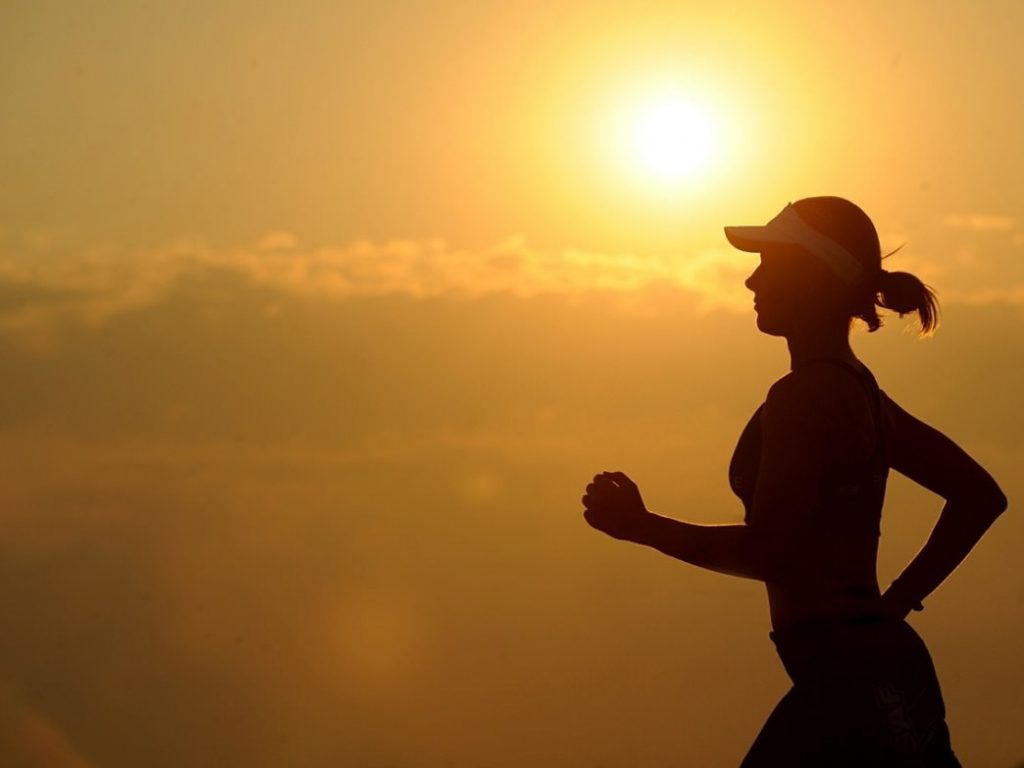Summer Running tips as per expert Janet Hamilton, a Georgia-based running coach and exercise physiologist, one way your body tries to cool itself in hot weather is by moving blood to the skin’s surface, where the blood’s heat evaporates into the air. This cooling process diverts blood (and the oxygen that fuels it) away from active muscles. Your body produces more blood to meet the competing needs of cooling and exercise. When the temperature drops, your muscles take advantage of this excess. “You feel like Peter Pan, like you can fly,” Hamilton explains. “If you’re on the cusp of a personal record, heat training might be the difference-maker.”
Taking to the streets while the temperature is increasing might be dangerous to health. And the influence can be even greater for runners. The hot sun may be preventing you from running the necessary distance, but some precautions may help you fight the heat. But do not worry. As we are here to give you the most essential tips and information which keeping you cool in the summer running.
How long does it take to adjust to heat?
According to study, two weeks of training in the heat for 60 to 90 minutes is sufficient for adaptations, with 75 to 80% of the adaptations occurring within the first five to eight days of exposure. These adaptations include greater plasma volume and improved heat absorption, both of which help runners stay cool. According to a 2020 study, after two weeks of heat exposure, an athlete’s heart rate drops by about 35 beats per minute when performing the same exercise.
What effect does hot weather have on running?
Running in the heat slows you down. As a result, if you’re training in temps above 60 degrees, you’ll need to slow down. When temps hit the 60s or above, you may add 5-8 seconds every mile, according to Keith Hanson’s Hanson’s Marathon Method.
Here’s how it works:
- If temperatures reach the 60s, add 5 seconds per mile;
- If the temperatures in the 70s, add 10 seconds per mile;
- and if the temperature is in the 80s, add 15 seconds per mile.
Benefits of Running in summers
Running in summers burn more calories
“Studies show that heat slightly increases your basal metabolic rate in an effort to keep the body cool. However, over time, the body learns to adjust to hotter temperatures.” sports dietitian Dana Eshelman explains.
You can intake more carbs
When running in hot conditions, you should consume extra carbohydrates. The reason for this is because your body pumps higher blood to your extremities than to your stomach. As a result, your body needs energy that is easily digestible; otherwise, you will have stomach problems. “The early workouts in heat may feel tougher than your routines in colder weather,” Dana adds. There will be an increase in heart rate and perceived rate of effort which signals the body to use more carbohydrates rather than fat throughout your workout. The body pumps blood to the muscles at greater heart rates to deliver oxygen and nutrients rather than to assist dyspepsia.
Simple carbs are rapidly turned into energy for the muscles. Fat and protein need an excessive amount of energy to breakdown. Simple carbohydrates include dried fruit, white bread, potatoes, and sports supplements.
Running in summer is an intelligent choice
Running in hot temperatures is not harmful if done correctly. Running in the heat, in fact, can be very helpful to your training.
According to research, running in humidity and heat is the same as training at mountain. Did it just completely blow your mind? Running in hot temperatures stresses the cardiovascular system, strengthening the heart. It also reduces blood supply to muscles since the blood is diverted to your skin, making exercise similar to that done at high altitudes.
Tips for Running in summers
Run when the weather is cooler.
Imagine how amazing it would feel to run in the early morning hours and get it done. Be an early bird. Take advantage of the long summer days by running when the temperature is at its lowest, especially in the early morning or late evening. (Getting it done in the morning might also improve your attitude for the rest of the day!) If you have a critical exercise planned, try doing it inside so you can push even harder without dealing with the heat.

Hydrate properly
Zoolander once stated “Water is the essence of moisture”. Drink plenty of water throughout the day! Hydrate well prior to, during, and after your run. Warmer weather requires an increase in fluid consumption. Drink at least eight bottles of water or sports beverage per hour before your run to keep your sweat systems in peak form.
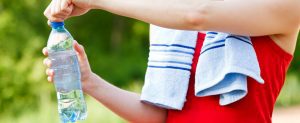
Dress Accordingly
Aaptive trainer Kelly Chase advices to wear bright-colored clothing made of a light, wicking material. As you’re dry, regular cotton feels cool, but when you sweat, it becomes wet and heavy. Fabric that drains away moisture allows heat to evaporate, keeping you cool and not dragging you down. When you feel like you’re melting, look for fabrics made of polyester or polypropylene.
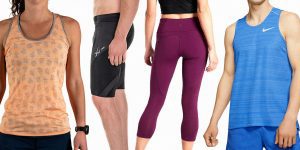
Always wear Hat and Sunglasses
In reality, if you want to protect yourself from the sun’s rays, you should wear a hat and sunglasses. Running sunglasses can actually protect your eyes from the sun’s damaging UV radiation. This will also help in the prevention of headaches caused by blinking or continuous exposure to strong sunlight. Choose running sunglasses that are lightweight. These types often provide more protection than casual models and will not bounce or skid when running. So these two objects are more than simply ornaments.
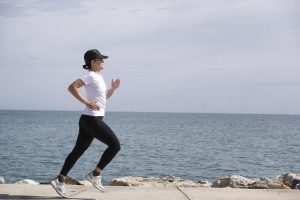
Always wear sunscreen
The sun’s radiation not only degrades your performance, but it also causes significant skin damage, thereby raising your chance of skin cancer. Runners, in fact, have a greater risk of skin cancer as well as other skin problems according to a research. Apply a waterproof sunscreen with an SPF of at least 40 and broad-spectrum protection, protecting against both types of ultraviolet radiation, UVA and UVB—the two most dangerous types of ultraviolet light.
Apply sunscreen at least 15 minutes before leaving the house. Also, even on partially overcast days, lather it up to protect yourself from damaging UV radiation. Cloud cover does not shield UV rays. Then, during your lengthy runs, reapply it. You’ll sweat a lot, which means you’ll sweat most of the sunscreen.
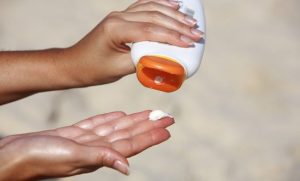
Don’t Force your body too much
Consider the weather conditions on race day (or during any strenuous training). Because of the over heat and humidity, you should reduce your performance targets. Try not to beat the heat. Concentrate on effort rather than speed. It is not the time to try and push your speed and set a new track record in hot and humid conditions. Slow down, take walks, and preserve your energy for cooler weather.
After this many of you getting the proper idea and understanding on how to keep yourself cool while running in summers. So be ready to revamp your summer running and be your own master.
For more information stay tuned with https://www.sheruclassicworld.com/


